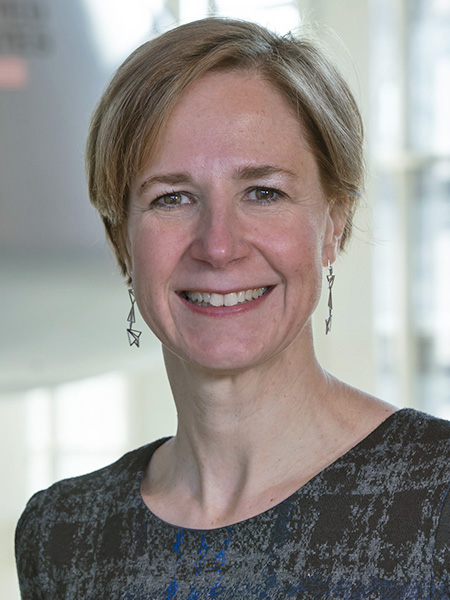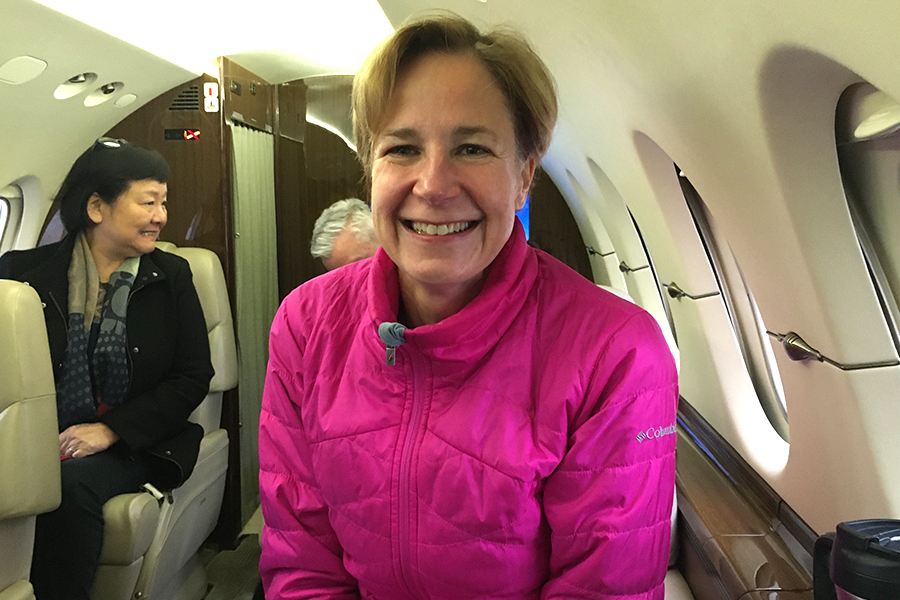Marais inspired during Big Ten leadership program
Karen Marais had an idea of what to expect as a fellow in the Big Ten Academic Alliance Academic Leadership Program.

She knew there would be weekly discussions with Purdue University leaders, ranging from the admissions office, to athletics, to the Provost and President.
She assumed she’d be exposed to a variety of leadership styles.
She figured she’d be motivated to continue a path of leadership.
But knowing what to expect didn’t lessen the impact of the year-long program: When a new cohort was announced in May, completing Marais’ term, she still was impressed with the overall experience.
“I was struck and inspired by how many of the leaders embarked on their journeys because of a genuine desire to serve, rather than one to ‘be in charge,’ ” said Marais, who joined AAE faculty in 2009 and has been associate head for undergraduate education since January 2018.
“Many of the leaders we heard from, all the way up to university presidents, showed through their words and actions that they lead from empathy, rather than from a desire to ‘be important.’ This was inspiring to me. I also learned that before you can be an effective leader, you have to know yourself, with all your strengths and weaknesses. And not just the fake weaknesses, like ‘I’m a perfectionist!’ ”
The program proved not only to be stimulating but also enlightening, edifying and emotional.
And, even, fun. Especially as it related to the cohort’s method of transportation to other Big Ten universities: A Purdue University jet.

That environment afforded the small group — that also included Purdue Professors Michael Heinz, Wei Hong, Mandy Rispoli and Rod Williams — an opportunity to register quality time, getting to know each other and sharing personal experiences of teaching and leadership.
It was time Marais cherished.
“We grew into this group of genuinely connected people who lean on each other almost every week for career advice, help with interview prep, and, of course, the occasional meme share,” Marais said.
Another valuable part of the program was hearing from leaders across Purdue and the Big Ten, learning about others’ journeys to their current positions and what they shared about those journeys. Though Marais may not have agreed with all the perspectives, she gained an appreciation for why people have them, she said.
At Michigan State, the presentations and discussions were around issues of inclusivity. At Maryland, there was a session on crisis management, which turned out to be timely as the COVID-19 pandemic hit in the spring.
“The presentations and discussions sometimes left me quite emotional — both because of what we learned about the harm that some people had and continue to experience, but also because of the deep caring and desire to improve our schools and societies that the presenters showed,” said Marais, chair of the College of Engineering Curriculum Committee and chair of the College’s Faculty Affairs Committee.
